THE 4th Asia Food and Beverage Summit (AFB Summit) gathered 216 participants in Jakarta, Indonesia from 4-5 September 2018. Ringier Trade Media Ltd organises the event annnually with partners the Indonesian Food & Beverage Association (GAPMMI), the Food Industry Asia (FIA), the ASEAN Food and Beverage Alliance (AFBA), the Philippine Association of Food Technologists, Inc. (PAFT), and the Indonesian Packaging Federation (IPF). They welcomed delegates from Indonesia, Malaysia, Singapore, the Philippines, Taiwan, and Hong Kong.
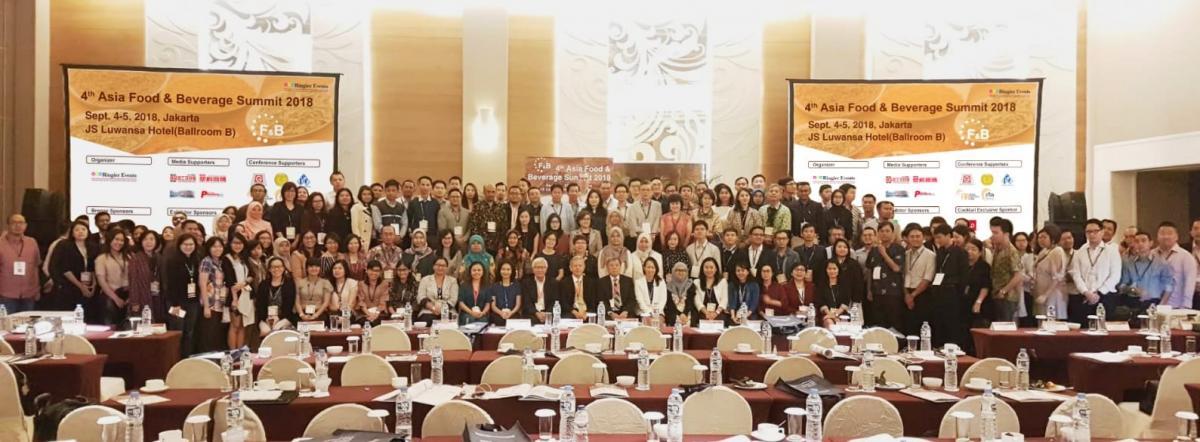
Ringier Trade Media welcomed 216 participants to the 4th Asia Food and Beverage at the JS Luwansa Hotel and Convention Centre in Jakarta, Indonesia.
In his welcome speech, Michael Hay, president of Ringier Trade Media Ltd, said the Southeast Asian region “promises ample growth opportunities for those who are on top of changing trends and consumer demands and develop products that take advantage of these changes.” He also pointed out as an example the growth of mini marts in Indonesia which is an opportunity for manufacturers of packaged foods and beverages to develop better products especially those that provide nutritional benefits.
Mr Rachmat Hidayat, vice chairman of the Indonesian Food and Beverage Association GAPMMI, a partner for this event, provided an outlook of Indonesia’s food and beverage market for 2019, and looked at the opportunities and challenges for the country’s manufacturers. While current economic and political developments have an impact on the local market, the outlook remains positive.
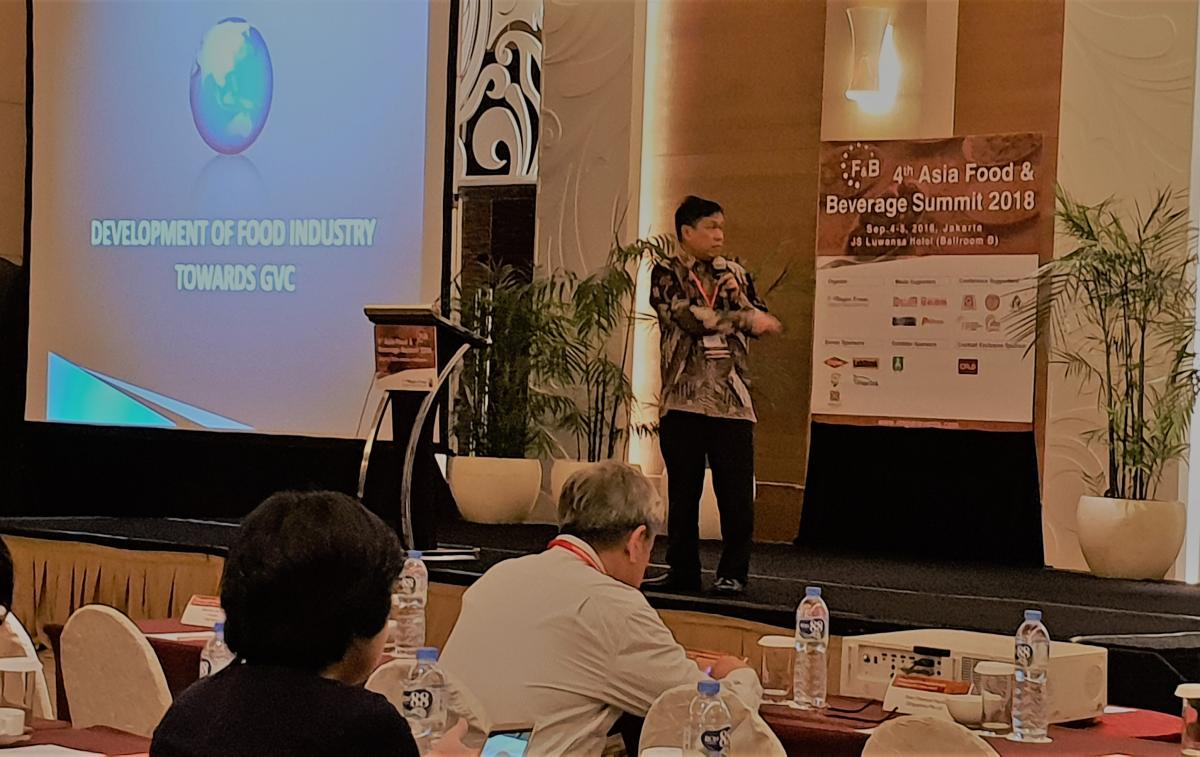
What will the F&B market in Indonesia be like in 2019? Mr Rachmat Hidayat, vice chairman of the Indonesian Food and Beverage Association GAPMMI provides the answers during the summit.
The packaging sector
Packaging is more important than ever, offering not only safety and protection of product, but brand visibility as well. But while the packaging sector addresses user convenience, productivity, the need for better labelling technologies, and such, it is also under pressure to adopt sustainable measures, and in particular to become more involved with stakeholders in addressing packaging waste. Hence, many of the resource speakers from packaging discussed the sector’s contributions in the circular economy, which essentially advocates full and extensive use of resources for as long as these are usable, in order to prevent waste.
Indonesian Packaging Consultant and Executive Director of the Indonesian Packaging Federation, Mr. Henky Wibawa whose experience in the packaging industry spans 30 years, talked about sustainable strategies, ecodesign strategies, life cycle assessment, and the circular economy.
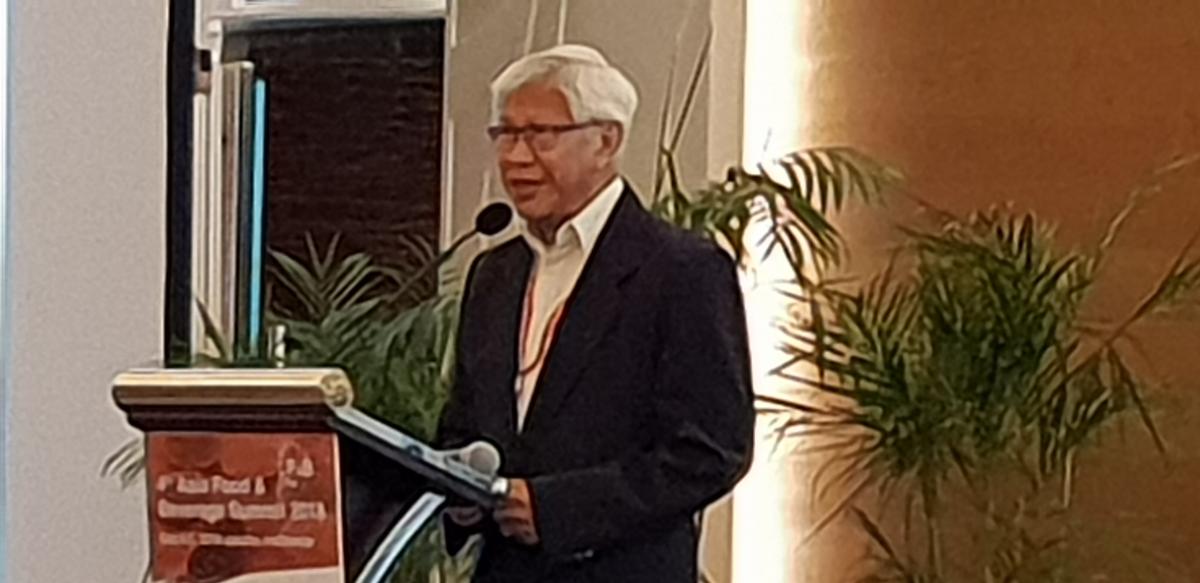
Mr. Henky Wibawa, Indonesian Packaging Consultant and Executive Director of the Indonesian Packaging Federation emphasises that sustainable packaging starts from the design which accounts for 80% of a product's environmental impact.
From Dow Chemical Pacific in Singapore, Ms Ee Lin Chew who is market development manager for Southeast Asia, Australia and New Zealand, presented on flexible packaging made more sustainable, and highlighted as examples Dow’s expanded portfolio for the food industry. This is especially significant in Asia Pacific which currently accounts for nearly 50% of global demand for flexible packaging, at 13.2MMT growing at 6%, said Ms Chew.
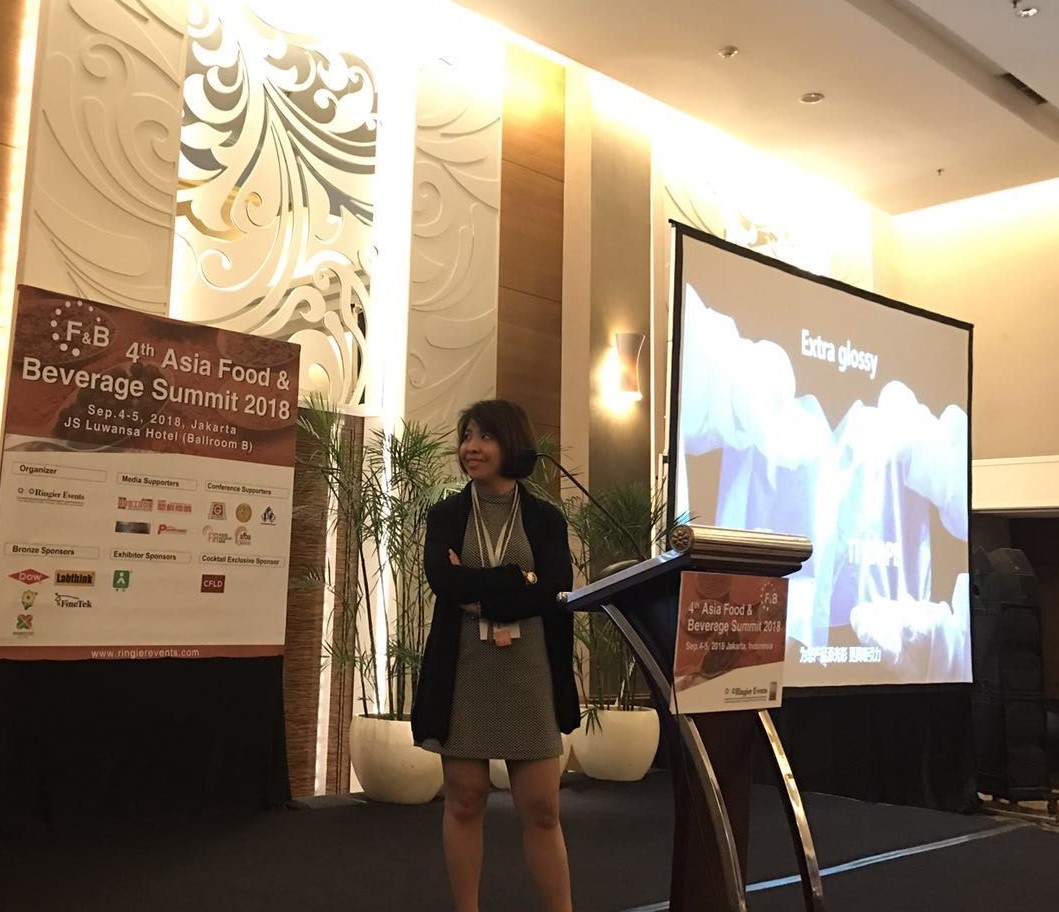
Ms Ee Lin Chew from Dow Chemical shares a video on how Dow is helping F&B companies with better flexible packaging.
From Detmold Group, a provider of paper and board packaging, regional general manager for sales in Asia, Mr Kenneth Whitaker, focused on the trends affecting the future of packaging, and mentioned Towards 2025, the Ellen McArthur Foundation, and the Clean Seas Movement whose initiatives target waste reduction, especially of plastic waste. With Detpak’s contribution is the RecycleMe™ program, in which existing collection and recycling systems have been utilised to keep fibres used in making RecycleMe™ cups in value for a longer period of time. The cellulose fibres are turned into copy paper, according to Mr Whitaker.
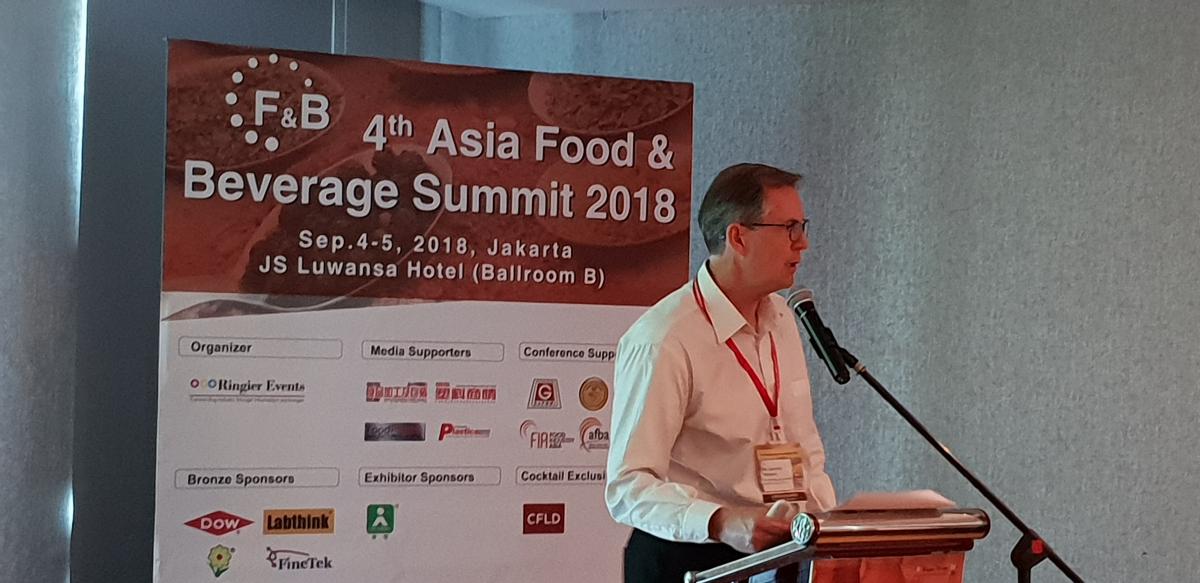
Mr Kenneth Whitaker, Detpak regional general manager for sales in Asia speaks on current initiatives on sustainability.
At the Asia Food and Beverage Summit, Myrna Benita Zamora-Luna, an assistant professor at the Department of Food Science and Nutrition, College of Home Economics at the University of the Philippines, discussed the challenges in biobased packaging.
David Christian, the founder and head of sales at Evoware, presented on edible packaging, as contribution to sustainability. A rather new company, Evoware is in the process of having the certifications for the products.
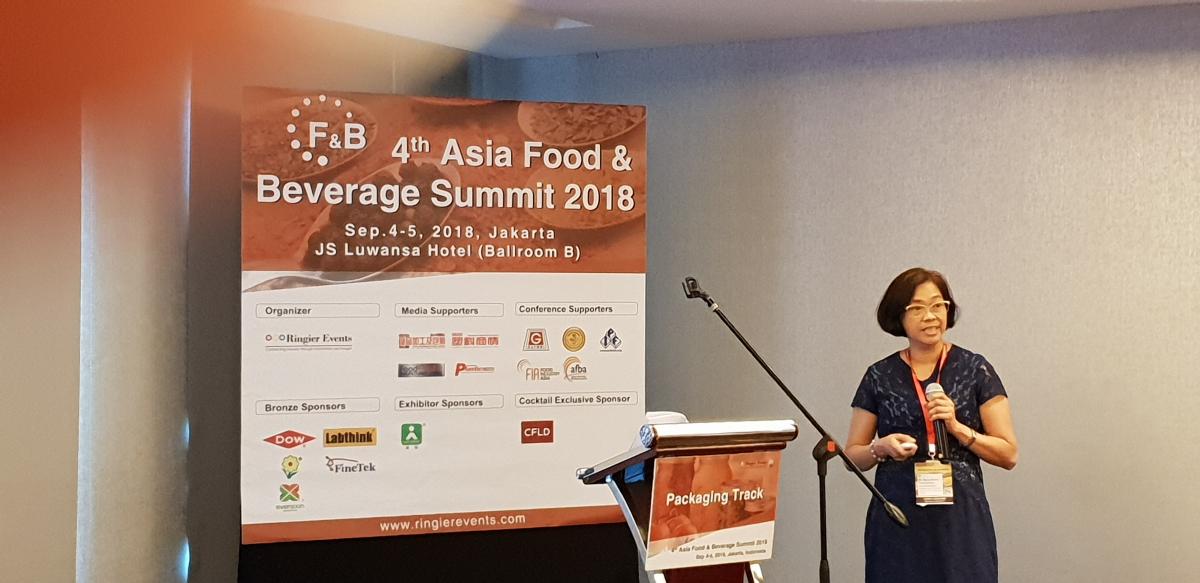
We heard on biobased packaging from assistant Professor Myrna Benita Zamora-Luna, Department of Food Science and Nutrition, College of Home Economics, University of the Philippines
Systematic innovation
Dr Miflora Gatchalian, CEO of Quality Partners Company Ltd, and the founding member of the Philippine Association of Food Technologists, presented on the role of systematic innovation in enhancing competitiveness. According to Dr Gatchalian, organisations have to continue innovating in order to stay competitive, and even slowing it down could make a difference in one’s competitiveness in relation to other organisations.
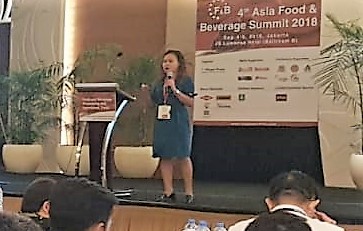
Dr Elaine Borazon, lecturer from the College of Home Economics, University of the Philippines-Diliman, on meeting consumer preferences in functional foods and beverages.
Functional foods, novel foods
Dr Elaine Borazon, a lecturer from the College of Home Economics, University of the Philippines-Diliman, traces the development of functional foods and beverages, and provides the areas of interest, trends, consumer behavior, and design structures of such products. According to Dr Borazon, the global market potential for functional foods and beverages has been estimated to be worth $192 billion by 2020. Although growing at good pace, development of these foods products can be very challenging for the food manufacturers, as they need to ensure that these products and ideas meet the expectations of the consumers (Menezes, Deliza, Chan, & Guinard, 2011; Urala & Lahteenmaki, 2007). Analyzing the existing studies and identifying the areas that needed improvement could contribute to the better understanding of consumer choice and behaviour.
Edible insects as part of food is nothing new, but they have yet to be a common part of every day meals. Massimo Reverberi, founder of Thailand-based Bugsolutely has been spreading the word about the nutritional benefits of cricket and silkworm powder added to snacks or pasta.
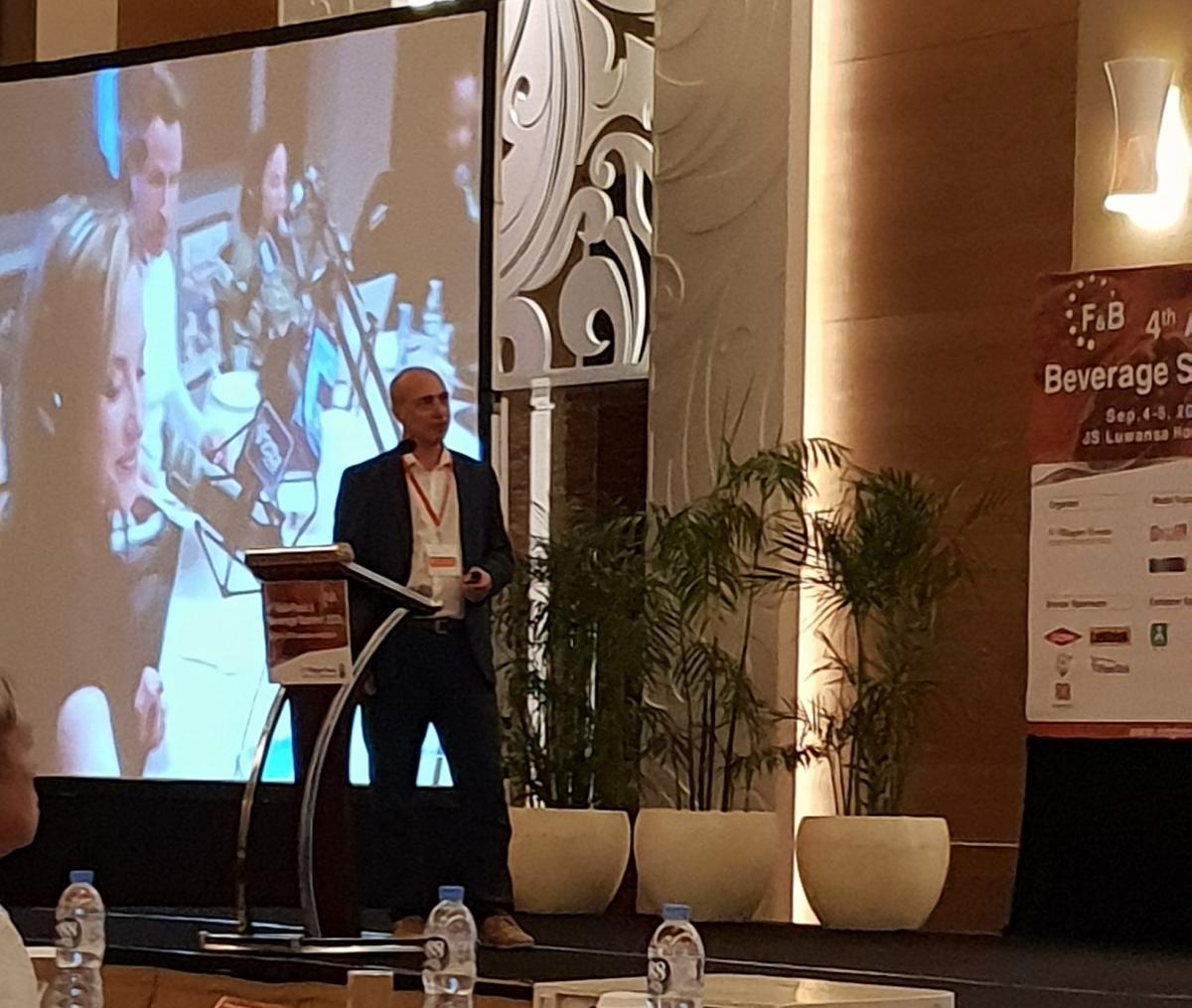
Massimo Reverberi, founder of Bugsolutely, shares the benefits of adding edible insect powder in pasta and snacks without changing tastes or textures.
Conference sponsor, Guangzhou Flower Flavours & Fragrances Co. Ltd, has developed over a thousand products for food and beverages. The company shared information of its ingredients especially coming from fruit and other natural sources.
Yung Soon Lih Food Machine Co., Ltd, manufacturer of soy bean processing equipment and solutions was among sponsors of the event. In her speech, the company’s vice manager Vicky Lin, talked about the health benefits of vegetable proteins, and soy in particular. Ms Lin also presented an analysis of soy milk and tofu markets in Asia.
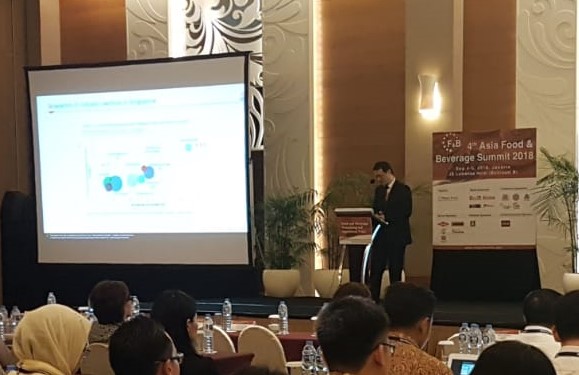
Mr Allan Lim, chairman of the Singapore Food Standard Committee, advise on creating F&B standards that support developing trends.
Standards in Singapore
Mr Allan Lim, chairman of the Singapore Food Standard Committee, shared an overview of Singapore economy and its impact on the local food and beverage industry. His detailed presentation also covered the city state’s capabilities in R&D and initiatives to move the industry forward. He discussed how current and future standards are working to support emerging trends and address the needs of the food and beverage industry, especially in this time of constant disruption.
Food safety
Citing the latest data from the WHO, Dr Jose Gatchalian, chairman of Quality Partners Company Ltd. said that annually, 600 million (1 in 10) people fall ill and 420,000 die from eating contaminated food. Hence, food safety – and quality, should be a way of life. The practice of such minimizes the chances of falling victim to food contamination. According to Dr Gatchalian, the free exchange of ideas among employees in an organization is important in spreading the word on food safety. In the food and beverage industry, workers and employees are able to adopt what they know of sanitation and hygiene to their homes, he said.
Blockchain is one of the newer ways we can ensure food safety. A presentation prepared by IBM Blockchain head, Zelda Anthony, explains the basics of blockchain and how it can be used to solve issues such as monitoring asset ownership and transfers. This particular issue can be solved by having a shared, replicated, permissioned ledger. Ms Anthony enumerates the steps that manufacturers can follow if they want to adopt a blockchain food supply chain solution.
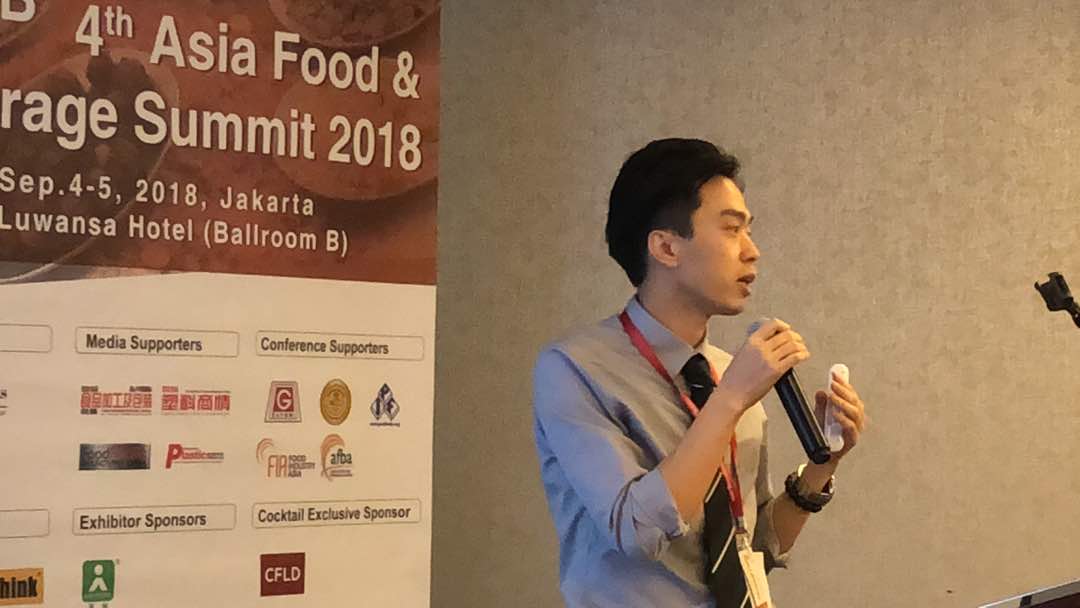
Mr Joe Shek, sales manager for Labthink in Indonesia focuses on testing equipment necessary in ensuring safe flexible packaging.
Testing equipment for flexible packaging
From Labthink Instruments, a sponsor of the Asia Food and Beverage Summit, sales manager for Indonesia, Mr Joe Shek, talked about how the company’s testing instruments and testing services ensure effective and safe flexible packaging.
From FineTek Co., Ltd, a sponsor of the conference, Dr Yeun Chung Lee, a professor as well as technical adviser, explains how using intelligent sensors can increase efficiency, productivity and quality during food processing.
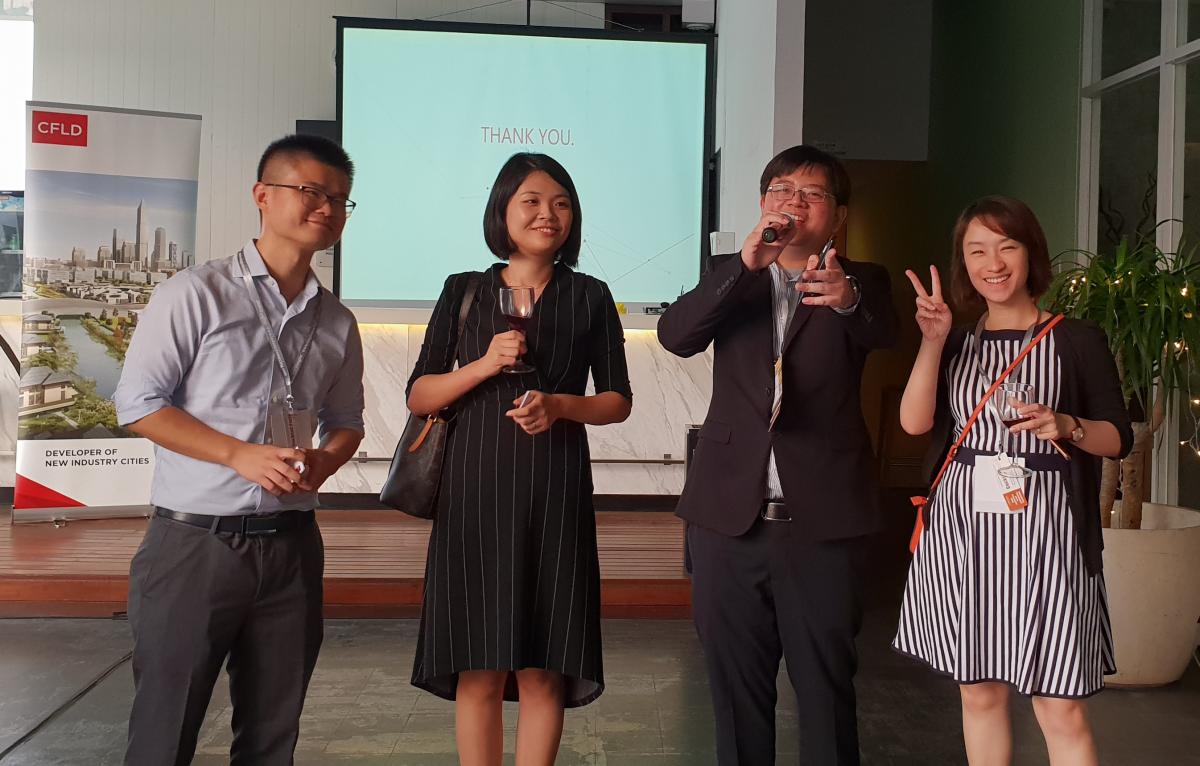
The CFLD team shares key points on the company's capabilities in industry city development during cocktails.
Cocktails with CFLD
At the end of Day 1, delegates were treated to a networking cocktail event at JS Luwansa hotel, courtesy of CFLD International, a leading new industry city developer and operator in China. CFLD has developed over 60 integrated city scale projects with total assets exceeding USD50 billion. The company based in Singapore is regarded as the pioneer in the PPP model. It focuses on master planning, early stage investment of infrastructure, development and operations of new industry cities in markets in Asia, Europe, North America and Africa.
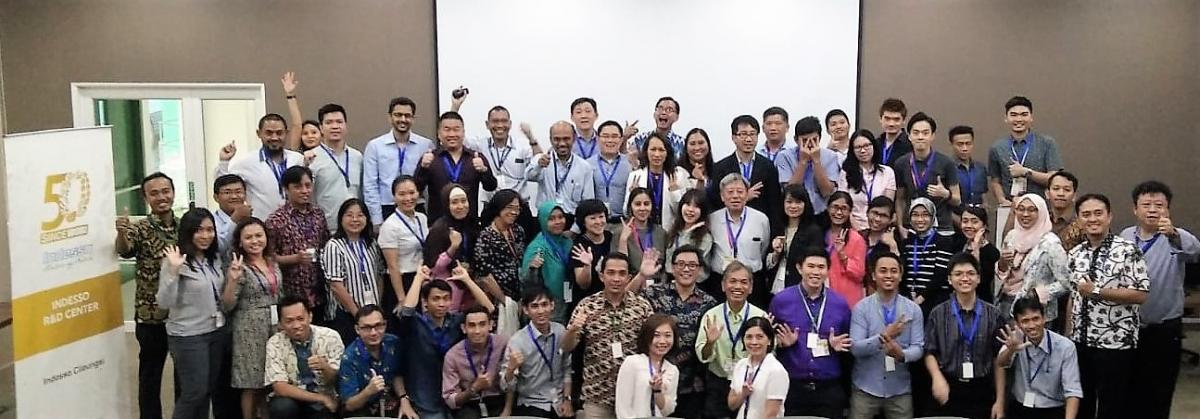
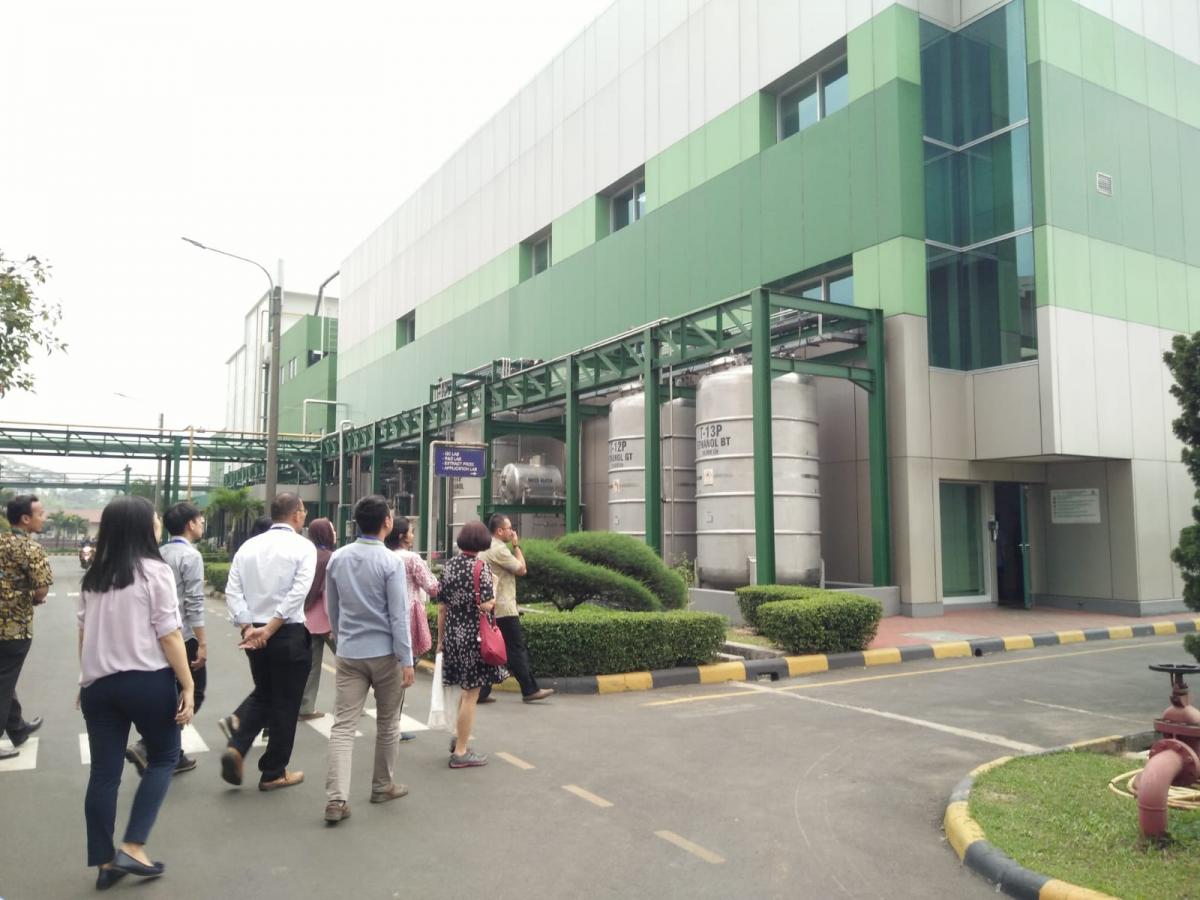
Participants tour the buildings at Indesso for flavour and fragrance extraction and other processes.
Factory visit to PT Indesso
After the two-day conference, Summit participants had the opportunity to tour the facilities of PT Indesso, a leading manufacturer of food, flavour, and fragrance ingredients. Its food ingredients portfolio includes seasonings, cheese powders, meat extracts, and coffee and tea extracts, just to name a few. Recently, the company opened a new R&D building which summit delegates were able to see for the first time.
The 4th Asia Food and Beverage Summit was organized in partnership with the Indonesian Food & Beverage Association (GAPMMI), the Food Industry Asia (FIA), the ASEAN Food and Beverage Alliance (AFBA), the Philippine Association of Food Technologists, Inc. (PAFT), and the Indonesian Packaging Federation (IPF).
The annual event is sponsored by Guangzhou Flower Flavours @ Fragrances Co., Ltd (China), Labthink Instruments Co., Ltd. (China), L&P Food Ingredient Co. Ltd (China), FineTek Co., Ltd (Taiwan), Yung Soon Lih (Taiwan), CFLD International, and Dow Chemical Pacific (Singapore) Pte Ltd.
Air Foamposite Max













